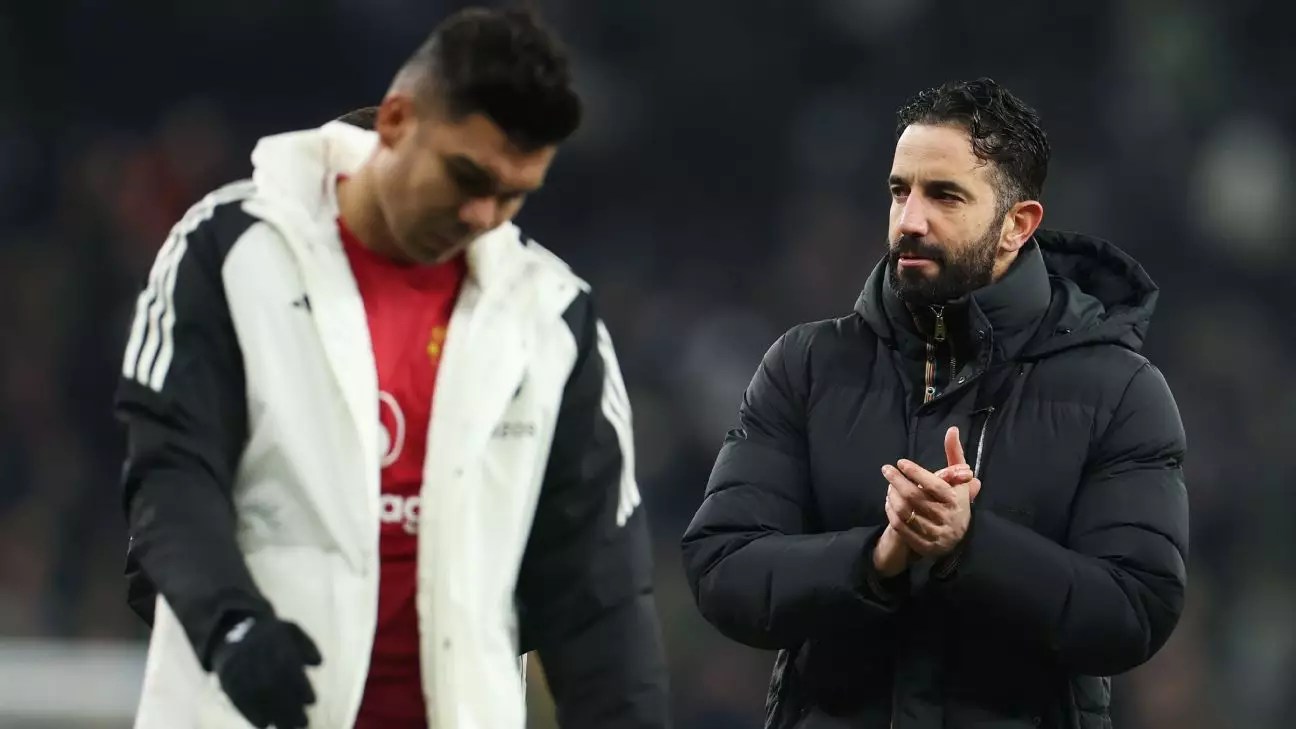In the cutthroat world of football management, the pressure to deliver results can be overwhelming, and Manchester United’s head coach, Ruben Amorim, finds himself at the center of that storm. Following a disheartening 1-0 defeat to Tottenham Hotspur, which marked United’s twelfth loss this season, Amorim’s assurances regarding his job security offer a glimpse into his mentality during these challenging times. With the team sitting precariously in 15th place in the Premier League, one must wonder how long his resolve can withstand the mounting pressure from both fans and the media.
Amorim has now lost eight out of his fourteen matches since stepping in for Erik ten Hag, an unimpressive start for someone seeking to recalibrate the waning fortunes of a historic club. Instead of fretting over his position, he has chosen to channel his energy into supporting his players. His statement, “I am here to help my players,” reflects a dedication that is admirable but may be symptomatic of a manager aware of the broader implications tied to his team’s performance. The question remains whether this approach will yield positive results in a league that demands immediate success.
The game against Spurs encapsulated the razor-thin margins that can dictate the outcome of a match. United struggled to capitalize on their chances, most notably with Alejandro Garnacho’s near-miss that could have altered the game’s trajectory. Amorim’s acknowledgment of this missed opportunity highlights the frustration of a manager who sees potential yet is unable to convert it into tangible results. “They scored and we didn’t,” he lamented, signifying a moment of tactical inadequacy that could resonate throughout the season.
The emotional and psychological toll of repeated failures cannot be understated; the team’s inability to find the back of the net is exacerbated by the mounting pressure from poor league performance. In a world where each game builds upon the last, the players need to not only execute tactically but also develop a mindset resilient to pressure— a challenge that Amorim seems eager to navigate.
Injuries are a cruel reality in football, and United has been particularly hard-hit this season, with the recent news of Amad Diallo likely missing the remainder of the campaign due to an ankle ligament injury further crippling Amorim’s options. The depth—or lack thereof—of the squad was starkly evident during the match, with a bench full of untested youth players, highlighting the urgency to bolster the first team.
Amorim’s decision to refrain from substitutions despite a pressing need for a change indicates a delicate balance between managing current talent and protecting younger, less experienced players. His cautious approach could be interpreted as a protective measure, yet it raises questions about tactical adaptability in high-stakes situations. With the upcoming match against a revitalized Everton, Amorim’s challenge will be to convert the heartache of recent experiences into momentum to aid the team’s resurgence.
As Manchester United prepares for their next encounter, the looming uncertainty of their trajectory weighs heavily. Amorim’s commitment to his players stands as a testament to his character, yet one must wonder how long this moral fortitude can endure in the face of accumulating losses. The road ahead will not only test his tactical nous but also his capacity to galvanize a team in desperate need of revitalization. The footballing world watches as United seeks to navigate these treacherous waters, hoping for a turnaround that seems increasingly urgent.


Leave a Reply